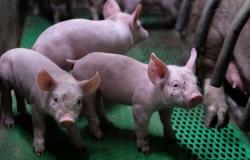Is organic food really better for your health? When they launched their experiment in 2017, researchers from the Chizé Center for Biological Studies (CNRS, University of La Rochelle) and the Biogéosciences laboratory (CNRS, University of Burgundy) did not plan to answer a health question public, but rather ecology. “We wanted to know how contamination of the environment by low doses of a mixture of pesticides, that is to say what we encounter in agricultural areas, could affect the survival of field birds like the gray partridgesays biologist and ecologist Jérôme Moreau, from the University of La Rochelle. Finding an experimental protocol that mimics these living conditions, to compare them to a situation where the animals are not or very little exposed, was complicated: we therefore chose to play on the birds' food. »
For several months, the researchers raised two groups of gray partridges (partridge partridge), the first fed with wheat and corn from organic farming, the others with the same cereals, but obtained by conventional agriculture. The objective is to observe the impact of traces of synthetic pesticides – banned in organic farming – present in bird feed. “Some colleagues told us that we would not see any effect. On the contrary, the results were striking and surprised us”says Mr. Moreau.
In just a few weeks of experience, the “conventional partridges” see their immune system dysregulated compared to that of the “organic partridges”, their red blood cell count reduced, the quantity of intestinal parasites increased. Published in 2021 in Environmental Pollutionthese results also show that conventional females lay smaller eggs with thinner shells; they have also accumulated more fat mass and have a stronger build than the “organic” ones. As for males, their plumage is less colorful. These effects modulated by sex could be linked, according to the researchers, to the endocrine disruptor properties of certain pesticides.
Reproductive effects
Their latest observations, published in 2023, even show that the conventional diet of these birds reduces their ability to fly and reduces their vigilance. “The escape distance, that is to say the distance from which the partridge flees when an intruder approaches, is approximately twice as low in birds fed conventionally”specifies Mr. Moreau. Sign of probable repercussions on the central nervous system of birds.
You have 82.88% of this article left to read. The rest is reserved for subscribers.
France
Health






